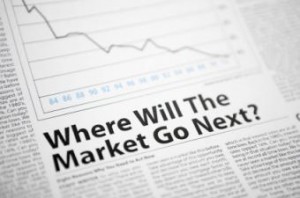 After a decline in economic activity in the first quarter, research has shown that a complete turnaround is expected for the second quarter. Fannie Mae’s Economic & Strategic Research (ESR) Group found indicators of the U.S. experiencing a moderate rebound in economic growth for the current quarter.
After a decline in economic activity in the first quarter, research has shown that a complete turnaround is expected for the second quarter. Fannie Mae’s Economic & Strategic Research (ESR) Group found indicators of the U.S. experiencing a moderate rebound in economic growth for the current quarter.
“The first-quarter slump wreaked more havoc than expected, particularly as real consumer spending grew only 1.8 percent annualized despite significant savings at the gas pump,” said Doug Duncan, Fannie Mae’s chief economist. “We adjusted our full-year growth projection down to 1.9 percent from 2.3 percent in the prior forecast, in light of the downward revision to first-quarter GDP. However, our forecast for the current quarter and the rest of the year is little changed as recent developments support our expectations for a second-quarter pick-up.
The research noted that strong consumer spending and oil and gas industry challenges are expected to cause a few delays in the second quarter. However, the research group determined that employment and household income growth along with normal weather conditions, will drive economic progression. Economic growth is expected to climb to 2.4 percent annualized in the second quarter before picking up more momentum in the second half of the year to an average of 3 percent.
“Labor market conditions are providing more near-term support for consumers, indicating that the acceleration in income growth this year should be sustainable,” Duncan said. “Additionally, the decline in gas prices could lead to a delayed boost in consumer spending as we saw in May with auto sales posting the strongest pace in nearly a decade, further signaling that consumer spending is gearing up for a rebound.”
Consumers began saving more money at the start of the second quarter as personal consumption expenditures (PCE) were flat against a rebound in personal income, the research says. After dropping to 5.2 percent in March, the saving rate bounced back in April to 5.6 percent. Between June 2014 and April 2015, personal saving rose $85.6 billion annualized. This was about two-thirds of the decline in spending on gasoline and fuels.
Labor market conditions are also experiencing a vast improvements, proving that income growth will likely be sustainable, according to the research. Nonfarm payrolls posted the largest increase since December, rising by 280,000 in May, while average hourly earnings rose 0.3 percent from April and 2.3 percent from a year ago, the largest annual gain since August 2009.
“Our forecast for housing and mortgage activity remains unchanged amid continued improvement seen at the start of the second quarter,” Duncan said. “We expect total housing starts and total home sales in 2015 to rise about 10 and 5 percent, respectively, with mortgage originations increasing approximately 23 percent to $1.46 trillion. Given the uneven economic growth in the U.S. and slow growth around the globe, interest rates are unlikely to surge. This should enable the housing market to better withstand some headwinds from higher rates this year than in the past.”
Click here to view Fannie Mae's Economic & Strategic Research Group Analysis.

 theMReport.com Your trusted source for mortgage banking news
theMReport.com Your trusted source for mortgage banking news








